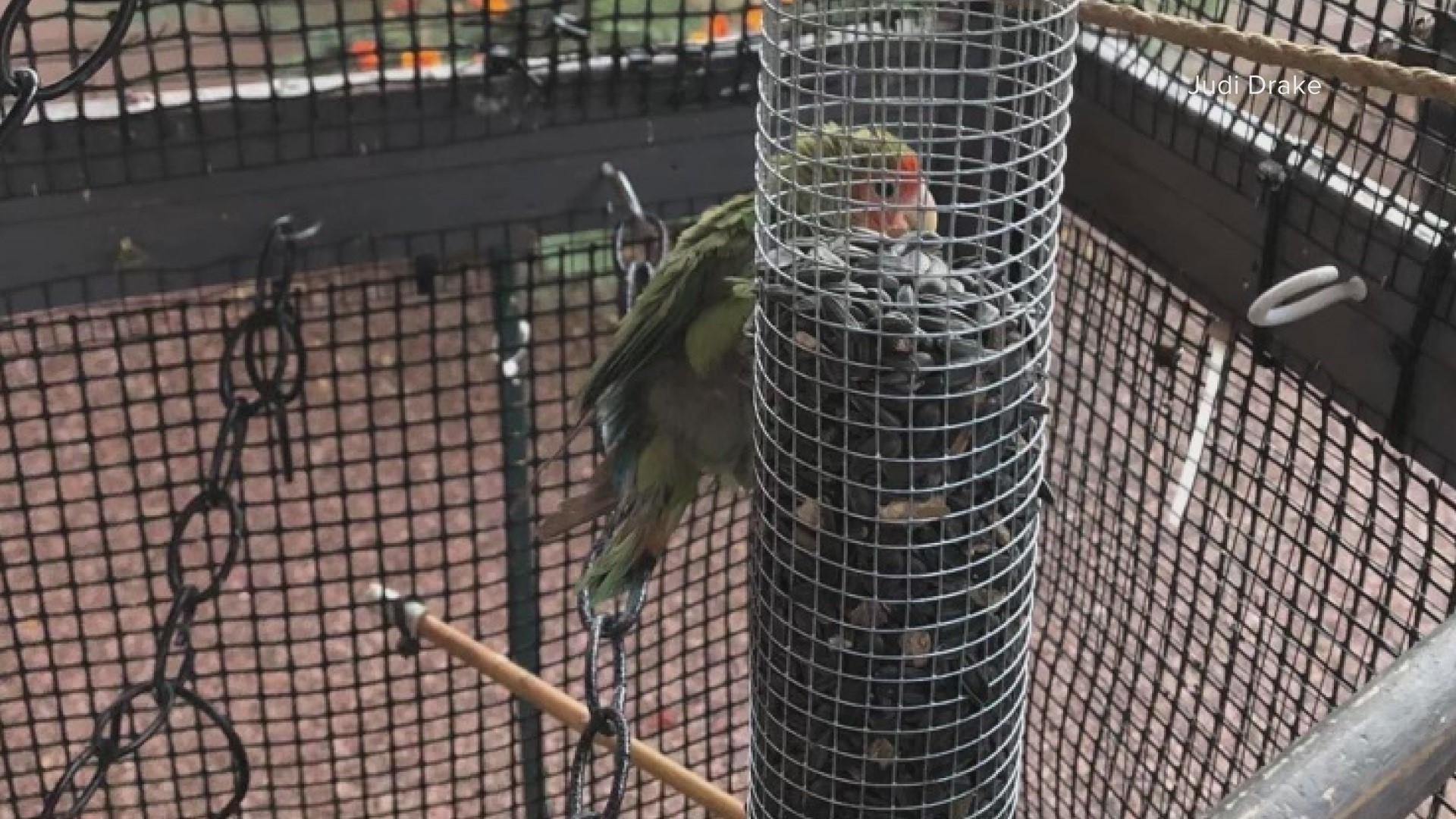PHOENIX — Judi Drake's backyard is usually ready to welcome all of the local lovebirds with an aviary, food and water.
"They're just too cute," Drake said.
Drake estimates she usually gets about 30 to 40 per day in her Ahwatukee backyard.
But right now, she just has some water out for the birds. The aviary is cleaned out and set to the side, the food has been put away.
"Way too many birds were dying," Drake said.
Drake said she started noticing the problem a few weeks ago.
"I noticed one of them was letting me get real close and that is very unusual," Drake said.
Drake said she placed that bird into a separate cage.
"Within 12 hours it was dead," Drake said.
In the weeks since Drake estimates she's had 22 or so lovebirds die in her backyard. Posts on social media indicate others have seen lovebirds dying too.
One of Drake's birds was given to Arizona Game and Fish's Anne Justice-Allen, a wildlife veterinarian for the agency.
Justice-Allen said the bird was tested and confirmed to have an infection called psittacosis, also known as Parrot Fever or chlamydiosis.
Justice-Allen said the virus, caused by a bacterium, has been known to spread before in the Valley's feral lovebird population.
"When the lovebird population gets rather large we seem to have more of these mortality events," Justice-Allen said.
It's unclear how many are infected and have died from this outbreak, but Justice-Allen said folks should be aware.
"There is some potential for human infection and that can be minimized by taking certain precautions," Justice-Allen said.
Humans who contract the virus can later develop a mild illness or pneumonia, according to the Centers for Disease Control and Prevention.
To help with the prevention of spread between birds, or picking up the virus themselves, Justice-Allen recommends people feed the birds in moderation right now and disinfect bird feeders using diluted bleach. Justice-Allen recommends one ounce of bleach per quart or five ounces of bleach per gallon of water to disinfect.
Justice-Allen also recommends when cleaning up patios and bird feces that people wear masks and wet down spaces to clean instead of using a blower.
If birds die in yards, Justice-Allen said to handle the birds while wearing gloves.
Drake said it was about 10 days ago when she started not feeling well and was continually testing negative for COVID-19.
"The fevers were 104.5 and they were up for about two days. She just did an X-Ray of the chest and bingo - there was the pneumonia," Drake said.
Drake said she's now feeling better, but will be keeping the backyard bare for a few weeks until the lovebirds can be welcomed back.
"I miss it, but it'll come back," Drake said.
To report birds dying in your yard, Arizona Game and Fish asks you to contact them here.
Up to Speed
Catch up on the latest news and stories on our 12 News YouTube playlist here.

